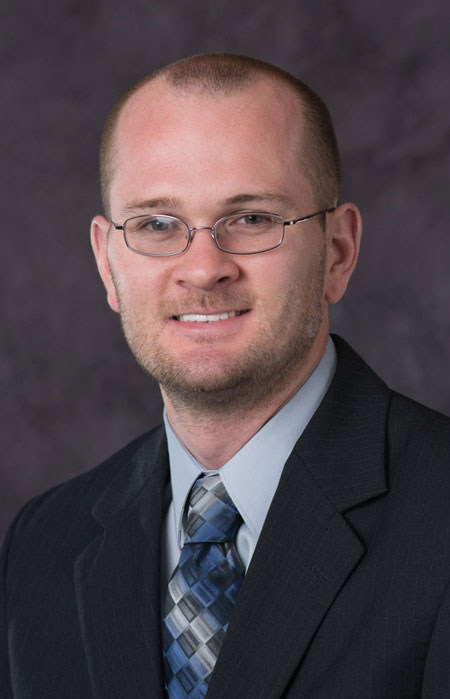Building Higher Education
Wednesday, March 22, 2017

Supply
In his working paper, The Production and Stock of College Graduates for U.S. States, Winters focuses on supply-side effects of higher education. As he conducted research across the United States, he found that education levels vary from state to state.
“My research says part of the reason why some areas have more educated populations is that they produce more education,” says Winters, an assistant professor in the Department of Economics and Legal Studies in the Spears School of Business.
“More simply, educating two more people from a state will on average result in one more college graduate in the state’s labor force,” says Winters.
The theory is that as areas invest more resources in education, they will increase their human capital — the knowledge and skills that individuals acquire through education, training and experience. In contrast, an area may produce education to grow its human capital, but people sometimes choose to relocate.
Demand
The demand aspect is discussed in Winters’ working paper, Do Earnings by College Major Affect College Graduate Migration?
Areas that produce education must be aware of the specific skills and college majors that local employers are seeking. If an area educates its population in fields that employers seek, it is more likely to lose that human capital.
“Areas are going to be better at keeping the graduates that have the human capital that they reward,” says Winters.
In many cases, this reward is a higher salary. Winters finds that “a 10 percent increase in major earnings in one’s home state reduces the probability of out-migration by 1 percentage point.”
Other Research
Winters also looked at the effects of merit programs on college majors. His article on merit programs was published in the October issue of the Journal of Labor Economics.
“One of the things that we found was that the merit programs were discouraging students from majoring in STEM (science, technology, engineering and mathematics) fields,” says Winters.
Winters and David L. Sjoquist, professor of economics at Georgia State University, also found evidence that the grade-point average renewal requirements of these merit programs have an impact on what major a recipient of the scholarship will choose.
In 2015, Winters received the William H. Miernyk Research Excellence Medal for the best paper presented at the Southern Regional Science Association Meetings. He also received the Richard W. Poole Research Excellence Award from the Spears School of Business in 2013 and 2014.
“My research suggests that there are large individual and social benefits of education, but there are ways that education can be improved,” says Winters.
Story by Lindsey Corbitt
